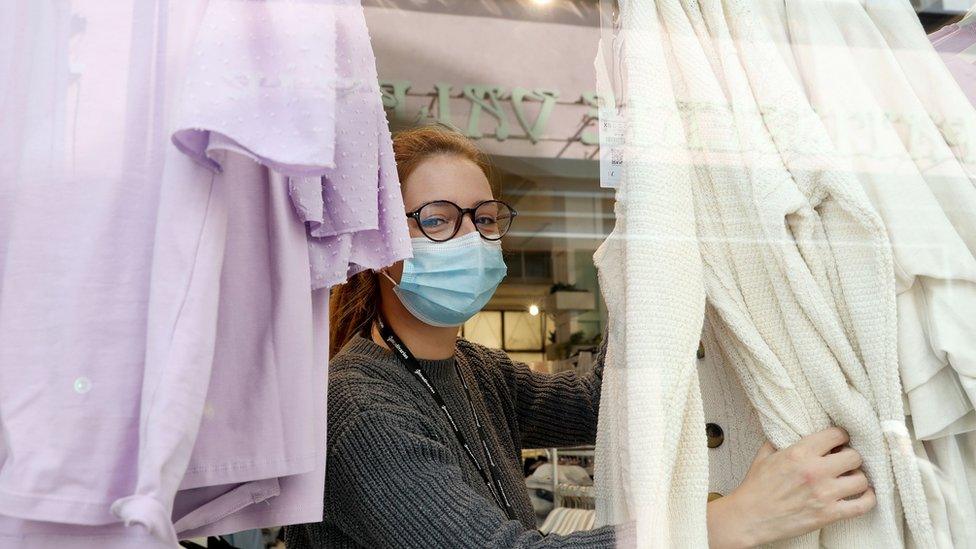Covid-19: 'There have been countless stories of loss'
- Published
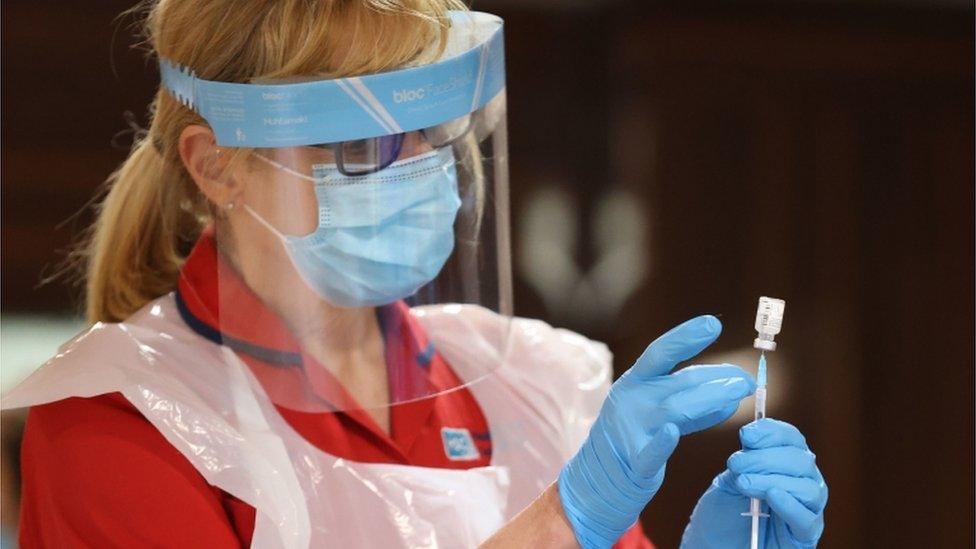
A nurse from the Belfast Trust prepares to inject care home staff with the Pfizer/BioNtech vaccine at Bradley Manor residential care home in Belfast
2020 has been a year like no other.
It will be forever defined by coronavirus - the deadly disease that has cost so many lives and turned others upside down.
The year began with the health service still reeling from the impact of the nurses' strike.
Then on 20 January we got a hint of what was coming - coronavirus was spreading from Wuhan to other major cities in China.
Eleven days later the World Health Organisation declared a global emergency.
A steep learning curve
Covid-19 would soon eclipse even Brexit as the biggest story across these islands, as the health implications spiralled into an economic and social crisis.
During those early days, as people scrambled to understand the pandemic, internet search engines went into overdrive.
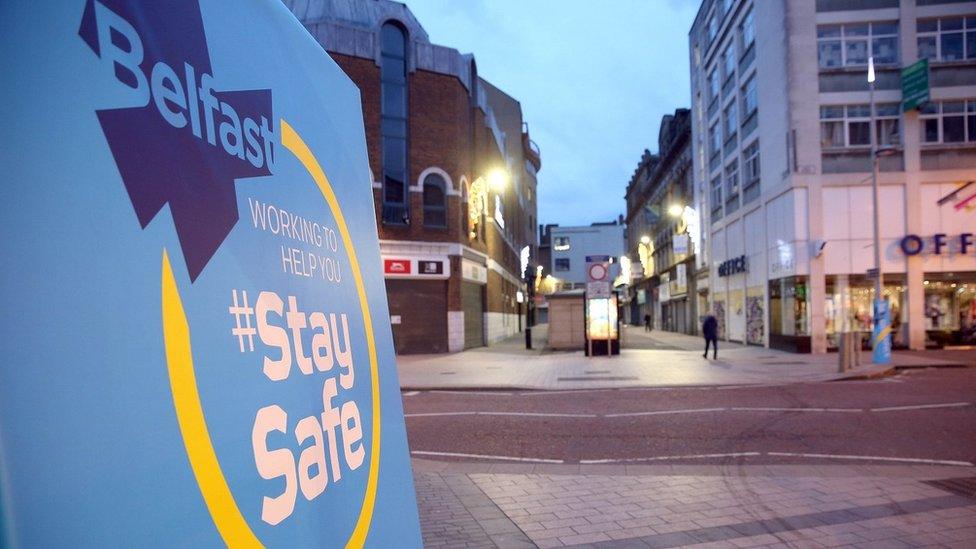
Our vocabulary changed and almost overnight we all became familiar with PPE (Personal Protective Equipment), lockdown, quarantine, contact tracing and the R number.
It was a steep learning curve.
On 27 February, journalists were huddled into a room at the Health and Social Care Board's Belfast HQ to hear confirmation of the first Covid-19 case in Northern Ireland.
At that stage there was no social distancing.
A hard tone to strike
We became aware of the symptoms: fever, dry cough, headache and possibly shortness of breath. And we learned that those who were severely affected could die.
For the media, striking the right tone was hard.
While not wanting to sound alarmist or send panic through the country, the public had to understand that we were dealing with a global pandemic.
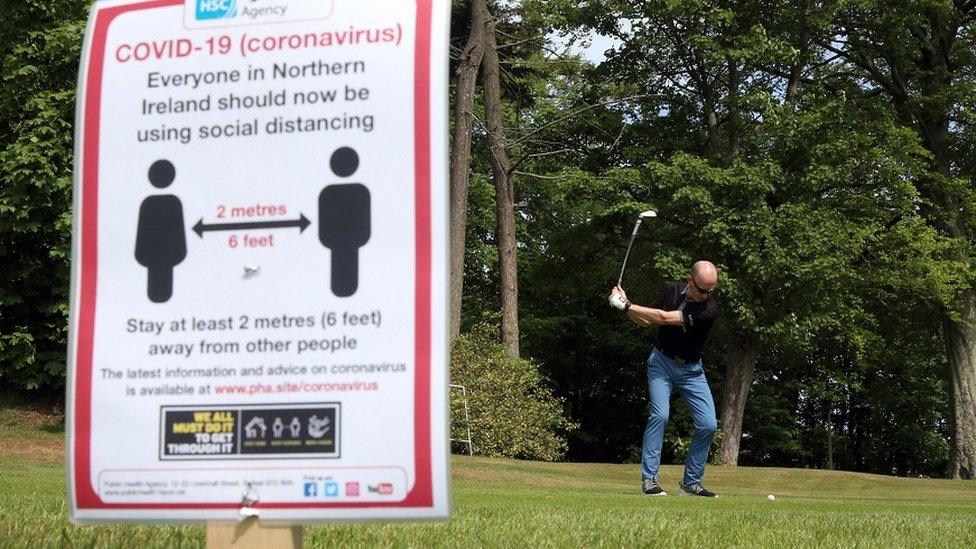
Cases continued to spike across Europe and as we watched the death toll rise in Italy, on 19 March came the news everyone had been dreading.
Shortly after 17:00 GMT I was contacted by a source saying Northern Ireland had its first Covid-related death.
In a live studio interview, I told viewers that an elderly man had passed away with the virus.
We reported that, while it was Northern Ireland's first statistic, he was also possibly a husband, father and grandfather.
Stories of loss
Some days stand out more than others.
Addresses by the prime minister and taoiseach (Irish PM) underlined the gravity of the situation.
Lockdown brought an eerie silence, hospitals began to fill up, pregnant women attended appointments alone and people continued to die with the virus.
There have been countless stories of loss to tell - among them Brenda Doherty whose mum Ruthie was one of the first to die with Covid.
'I'm constantly defending how mummy died' - Brenda Doherty
Her family were unable to bury Ruthie in her favourite red dress or kiss her goodbye.
I have interviewed Brenda several times over the past 10 months - each time it has been heartbreaking.
I spent many days broadcasting from our box room lit by my little red lamp.
For me, like everyone else, the small things have taken on greater importance - especially a weekly cup of tea in the garden with my parents.
We've all also spent a year of having to give things up.
I have watched my son miss school and his precious football.
My daughter has been doing her university placement, not in Surrey, but from our box room and sitting under that same red lamp.
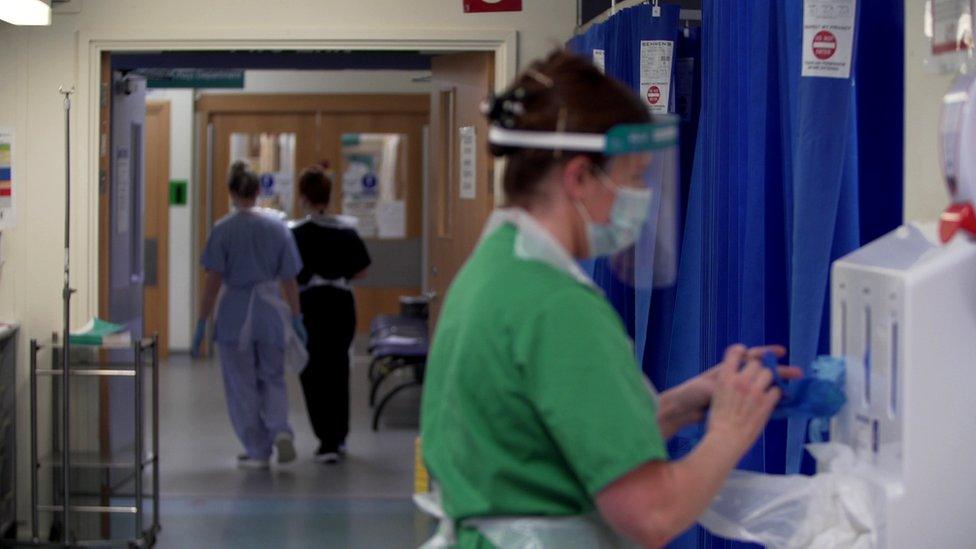
Staff talked about the pressures of working during the pandemic
There have been many important moments including filming in Altnagelvin Hospital at the height of the pandemic.
We saw first-hand how hospital staff worked flat out caring for very sick people while keeping others alive.
A lot of controversy has centred on how Covid has been tackled in care homes.
Again, along with cameraman John Morrissey, I spent a day watching, listening and reporting on the lives of very vulnerable men and women in care.
We end the year on a slightly more positive note. Just slightly.
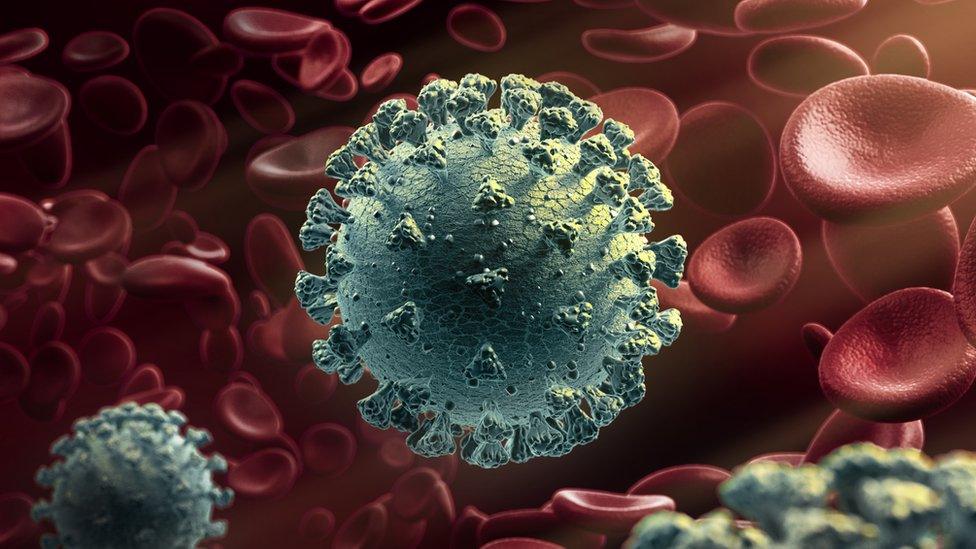
Promises of a vaccine became a reality on 2 December. That was a good news day.
There are still mountains to climb, including another lockdown to get through and a new variant of the virus has emerged.
Most of us will be glad to see the back of 2020, but look forward with hope to 2021.
Related topics
- Published18 December 2020
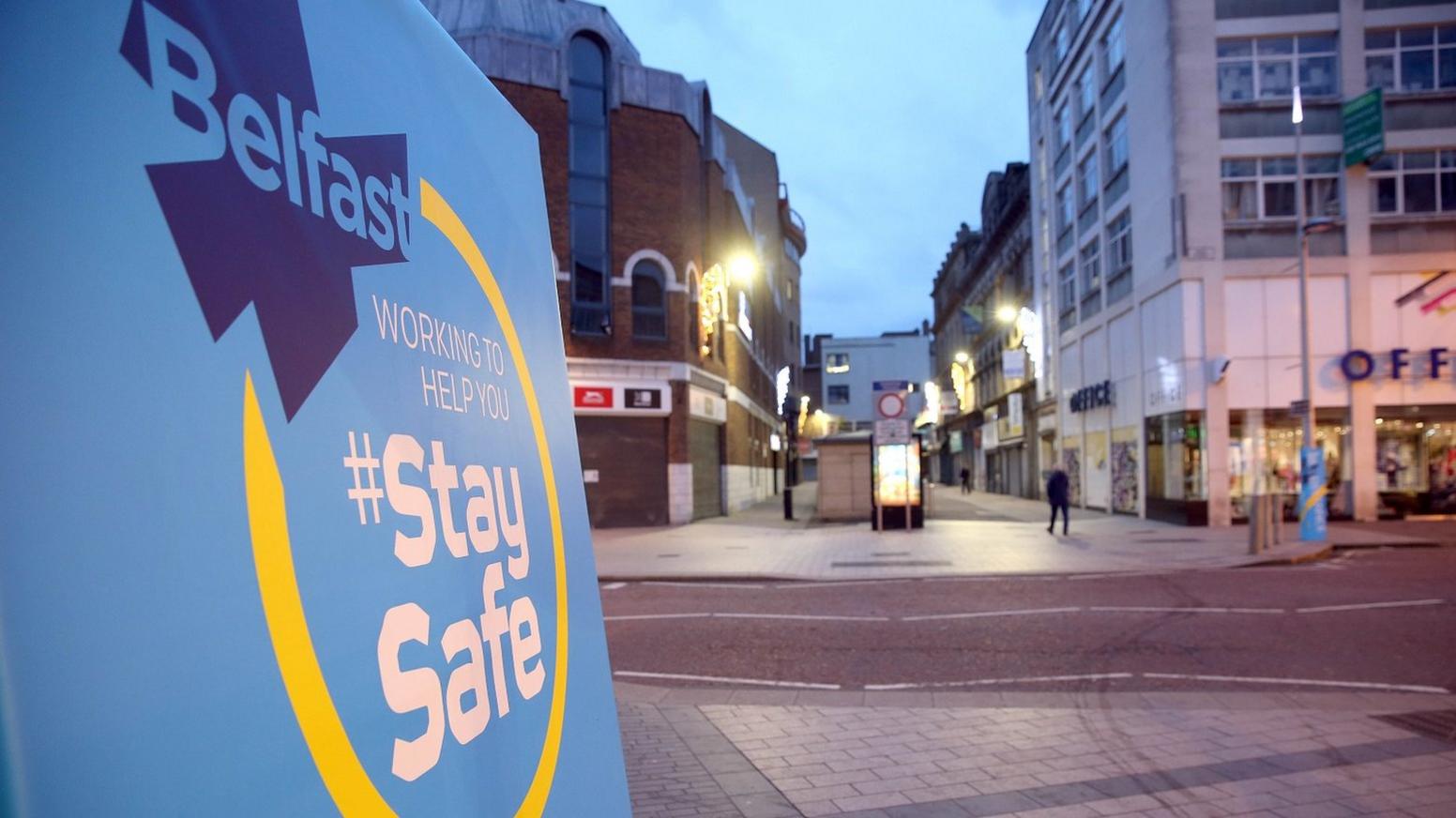
- Published28 October 2020
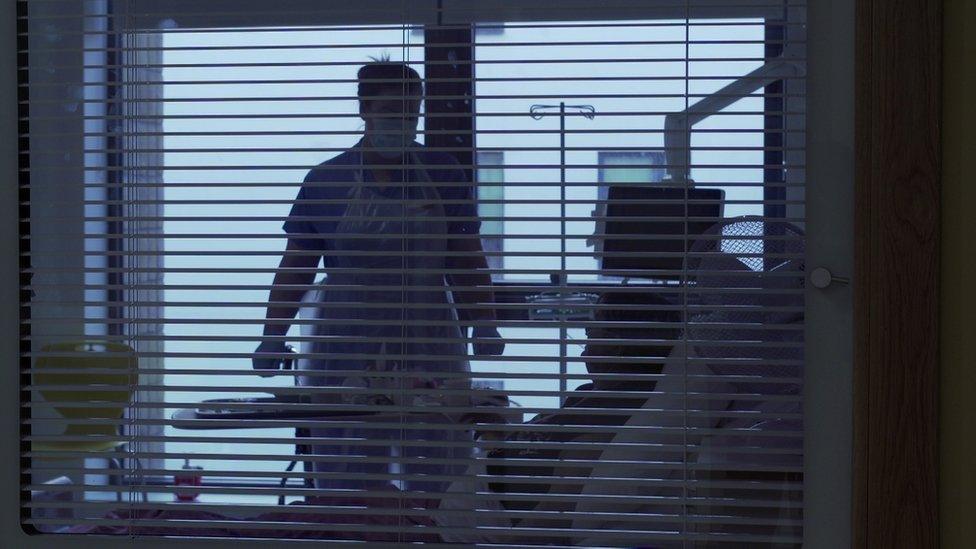
- Published8 January 2021
